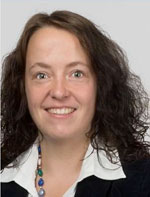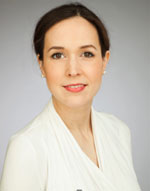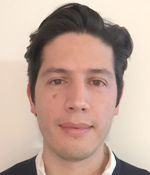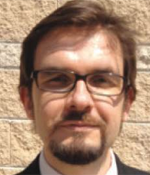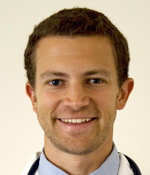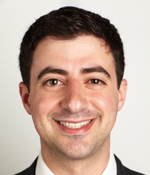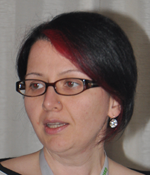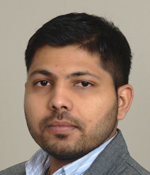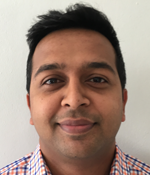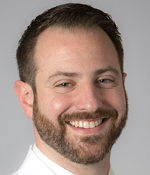


Dear Member
We are proud to announce the launch of the Tribune Pulse which coincides with a significant shift in strategy regarding email communciations with members.
EMAILS to TTS Members - NEW STRATEGY
As of today, TTS members will only receive the following emails from IHQ:
- Tribune Pulse - Weekly Update (every Wednesday) Subscribe
All member news and marketing communications will be consolidated under this new format. - Transplantation Journal - Electronic Table of Contents (monthly) SUBSCRIBE
- Transplantation Direct Journal - Electronic Table of Contents (monthly) SUBSCRIBE
- Annual Member Dues Invoice (and reminders)
Members may unsubscribe to any email communications with the exception of your membership dues.
About the Tribune Pulse
The weekly Tribune Pulse will consist of the following permanent segments:
- A special focus or theme for every issue prepared by guest editors
- TTS news, notifications, upcoming meetings, etc.
- Transplantation journal featured article
- A Young Members Corner
- Member contributed news
- In the News – Highlighting transplantation news from around the world
- Tribune Pulse feedback forms
Every issue of the Tribune Pulse will be archived on our website under our news section in the event you miss an issue.
Clikc the link below to contribute news of interest to your colleagues or provide us with feedback.
Click here to submit your news
Upcoming Issues
- March 8 – Transplantation journal refresher – Gillian Hughes
- March 15 – Vaccination and solid organ transplantation - Armelle Pérez-Cortés Villalobos
- March 22 – Pediatric transplantation - Burkhard Tönshoff (IPTA)
- March 29 – Laprascopic techniques in live donors - Simone Perales
- April 5 – Outcomes of liver, pancreas and kidney transplantation - Marcio Chedid
- April 12 – Normothermic preservation of liver grafts - Thamara Perera
- April 19 – Pancreas and Islet Transplantation – Jon Odorico (IPITA)
- April 26 – Extended criteria donors - Georgios Tsoulfas
We have developed a form to provide guest editors with feedback about their upcoming/past issues.
Click here to provide feedback or comments to our guest editors.
Transplantation / Transplantation Direct Journals - Editorial fellows
The Transplantation Group has started a new initiative to involve younger clinicians and scientists in editing scientific publications. We were flooded with excellent applicants and have appointed four Transplantation Journals’ Fellows to internships with the editorial team. Congratulations to Dr. Joel Adler, Dr. Karen Keung, Dr. Peri Kocabayoglu, and Dr. Andrea Schlegel, all of whom will work with the editorial team to bring new ideas and new energies to the journal. Congratulations to the new appointees and our thanks to all who applied. We look forward to incorporating new directions and improvements for both Transplantation and Transplantation Direct.
|
|
Andrea Schlegel, MD - Following her medical degree, Andrea obtained training from the surgical Department of Prof. Pierre-Alain Clavien at University Hospital Zurich. Here her personal commitment to an academic career in the field of transplantation surgery emerged. Her research focus is on organ allocation and the development of new preservation techniques. Since 2016, she has been working as a Senior Clinical Fellow in liver transplantation and HPB surgery at Queen Elizabeth Hospital in Birmingham, UK. |
|
|
Peri Kocabayoglu, MD - Peri graduated magna cum laude as a medical doctor from the University of Duisburg-Essen Medical School, Germany, in 2007, after which she commenced her surgical training at the Department of General, Visceral and Transplantation Surgery at the University Hospital Essen. She was awarded a research fellowship by the German Research Foundation (DFG) and completed her postdoctoral training from 2010-2013 at the Icahn School of Medicine at Mount Sinai Hospital in New York, USA, investigating the role of Hepatic Stellate Cells during liver regeneration and cancer. Her main areas of research are organ preservation through machine perfusion as well as the contribution of non-parenchymal cells to tumor recurrence following liver transplantation. |
|
|
Karen Keung, MD - Karen developed a strong interest in transplant medicine during her clinical nephrology training at Westmead Hospital in Sydney, Australia. Clinical patient care is her passion, but her curiosity towards science in transplantation spurred her onto a full time PhD after she completed her fellowship in 2015, under the supervision of Philip O’Connell and Germaine Wong. Recently she spent a year in New York collaborating with Barbara Murphy’s team at Mount Sinai Hospital. Her current focus is on molecules identified from large scale transcriptome expression profiling studies and their role in causing/predicting allograft injury. |
|
|
Joel T. Adler, MD, MPH - Joel is currently a chief resident in general surgery at Massachusetts General Hospital (Boston, USA). He will begin a fellowship in abdominal organ transplantation at the University of Wisconsin (Madison, USA) in August 2017. His research involves organ allocation policy, long-term outcomes after living kidney and liver donation, and the role of geography and economics in access to transplant care. He is also interested in the role of social media in disseminating research and policy and can be found on Twitter @joeladler. |
Education Committee Webinar Announcement
|
|
THURSDAY, MARCH 9, 2017, 11AM (MONTREAL TIME)How to Write a Successful Clinical Science GrantPeter Reese |
Young Members' Corner
Calling All Young TTS Members

TTS forms new Young Members' Committee to engage trainees and junior faculty in networking, professional education, and career advancement opportunities
We are pleased to announce the formation of the Young Members Committee, a new addition to the TTS community designed to offer unique resources geared toward our trainee and junior members. We hope to highlight issues that matter most to young members: mentorship and networking with leaders in the field, resources for professional development and career advancement, and online educational pearls directly from the experts. Our networking event at TTS2016 in Hong Kong was a fantastic exchange of ideas with peers from across the world. We are looking forward to new Young Members events at upcoming transplant conferences, and hope to see you there. Keep posted to the Young Members' Corner for upcoming events and features!
|
|
Elmi Muller, M.B., Ch.B, M.Med |
|
|
Jayme E. Locke, MD, MPH, FACS |
|
|
Jose Camargo, MD, |
|
|
Mario Fernández-Ruiz, MD |
|
|
James Gardner, MD, PhD |
|
|
Fadi Issa, DPhil |
|
|
Arzu Oezcelik |
|
|
Shailesh Raval |
|
|
Sanju Sobnach |
|
|
Steven Wisel |
|
|
Germaine Wong |
In the News
Cotton Candy Machines Could Revolutionize Organ Transplantation: New Tissue Engineering Method Could Create Artificial Organs
Feb. 12 - Leon Bellan, assistant professor of mechanical engineering at Vanderbilt University in Tennesse, has developed a process using cotton candy machines, to spin out networks of tiny threads comparable to capillaries. His goal is to eventually build fiber networks that can be used as templates to create full-scale artificial organs. His work, along with that of his colleagues, was published in an article by the Advanced Healthcare Materials journal. Many tissue engineering researchers, including Bellan, are currently focusing their efforts on hydrogels and using them as scaffolds to support cells within three-dimensional artificial organs.
Read More
Vatican organ trafficking summit issues statement
Feb. 14 - Vatican Radio - The Pontifical Academy of Sciences has issued a statement following its summit on Organ Trafficking and Transplant Tourism which was held in Rome in February 2017. In it the participants resolve "to combat these crimes against humanity through comprehensive efforts that involve all stakeholders around the world."
Read More
Critically Ill Children Can Still Undergo Liver Transplantation And Survive
Feb. 7 – CHICAGO: According to a new study published online as an "article in press" in the Journal of the American College of Surgeons (JACS), children who are sick enough to require mechanical ventilation or dialysis before transplantation achieve the same survival benefit as children who are stable prior to the surgical procedure. The study will appear in a print edition of the Journal this spring. The study is a nationwide evaluation of all children under the age of 18 years who had liver transplantation between 1987 and 2015. Survival improved steadily for all patients over time. One-year survival was 66 percent in 1987 and 92 percent in 2015. Survival likewise improved for the sickest patients, as defined by the need for dialysis or mechanical ventilation.
Read More
Heart Device, Now In Testing Stage, Could Reduce Risks For Transplant Patients
Feb 4 – Chicago Tribune - The device must successfully complete three phases of human testing before it goes through a Food and Drug Administration process that evaluates safety and effectiveness. Currently in phase two of testing, it could hit the market in 2019 if it passes each level. Right now, the left ventricular assist device, or LVAD, is used as a longer-term solution for patients who may stay on the device for the rest of their lives. This procedure requires the chest cavity to be opened so a mechanical pump can be installed. The LVAD is worn like a backpack, and the tubes must be kept clean to avoid infection.
Read More
New Insights Into Liver Disease and Transplantation
Feb. 13 - Several important advances emerged from abstracts presented at the Liver Meeting®, the 2016 Annual Meeting of the American Association for the Study of Liver Diseases. Topics covered included the assessment of frailty to enhance the care of patients awaiting liver transplantation; long-term outcomes after liver transplantation, including the potential for withdrawal of immunosuppression; new therapeutic options for patients with primary biliary cholangitis and primary sclerosing cholangitis; the risk for hepatocellular carcinoma in patients with chronic hepatitis B despite optimal antiviral therapy; and the potential to cure, rather than merely control, chronic hepatitis B virus infection.
Read More
Scientists Develop Glow-in-the-Dark Mice Which Can Make New Gene Therapies Easier
Feb 21 - The Siasat Daily - Stanford scientists have successfully developed glow-in-the-dark mice using compounds that create proteins responsible for lighting up fireflies, an advance that may pave the way for new gene therapies. Timothy Blake, a postdoctoral fellow at Stanford University in the US refined compounds that carry instructions for assembling the protein that makes fireflies light up and delivered them into the cells of an anaesthetised mouse.
Read More
Contact
Address
The Transplantation Society
International Headquarters
740 Notre-Dame Ouest
Suite 1245
Montréal, QC, H3C 3X6
Canada
Используйте Вавада казино для игры с бонусом — активируйте промокод и начните выигрывать уже сегодня!


